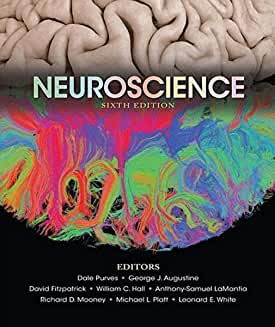Spring 2023 Class Schedule
For scheduled times of courses in other departments, go to CAESAR.
ATTENTION!
During preregistration enrollment in NEUROSCI 206-0 is limited to neuroscience majors only!
To declare a Neuroscience Major, please request an appointment through neuroscience@u.northwestern.edu. Please be sure to list your availability!
What happens if a class fills up during preregistration?
Preregistration allows majors to add up to 2.34 units before anyone else may register for Neuroscience related courses - lists of classes allowing preregistration. Preregistration is the ideal time for students to enroll in Group A or Group B requirements at a time when courses are only available to Neuroscience Majors. If you were unable to register for 2.34 units because the class you wanted was filled, you will be able to place your name on the waitlist during regular registration do not contact the instructor for a permission number. Having your name on the waitlist does not guarantee you a spot in the class. It offers the opportunity to take the class if a registered student drops the class which you were interested in.
What happens if a class fills up during registration?
- Place your name on the waitlist.
- Wait to be contacted by the program assistant to see if you are able to register for the class.
- Once contacted, you must either remove your name and register for the class or remove your name from the waitlist.
Quick Course References:
 NEUROSCI 206-0-21 Systems and Behavioral Neuroscience
NEUROSCI 206-0-21 Systems and Behavioral Neuroscience
Taught by Dr. Justin Brown on MWF 1:00 pm -1:50 pm. This course explores current understanding of the organization and function of neural systems (visual, auditory, motor, etc.) within the mammalian nervous system. Topics will include basic neuroanatomy, sensory processing, motor control, and higher cognitive functions including memory and language. Time will be devoted to presentation of essential knowledge from each area as well as to a discussion of key experiments that have contributed to our understanding. May not receive credit for both this course and the former NEUROSCI 306-0/BIOL_SCI 306-0.
This course is limited to Neuroscience Majors during preregistration but is open to all students meeting the prerequisites beginning February 27, 2023.
Prerequisite: NEUROSCI 202-0 or NEUROSCI 311-0 or BIOL_SCI 302-0.
Natural Sciences Distro Area
NEUROSCI 303-0-20 Molecular Mechanisms of Neuropsychopharmacology
Taught by Dr. William Klein on TTh 11:00 am - 12:50 pm. Neuropsychopharmacology treats brain disorders and interrogates states of consciousness by altering the activity of specific brain molecules. These molecules largely localize to synapses, remarkable structures where signaling gives rise to thought and behavior. This advanced seminar course focuses on molecular mechanisms and aberrations of synaptic signal transduction and drugs that target them. Introductory historical perspectives will be followed by consideration of contemporary issues. Class discussions focus on readings from the research literature. No book required. No final exam during finals week.
Prerequisite: NEUROSCI 202-0 or NEUROSCI 311-0 or BIOL_SCI 302-0.
 NEUROSCI 308-0-20 Genetics of Human Behavior
NEUROSCI 308-0-20 Genetics of Human Behavior
This course will be taught by Dr. Marco Gallio on Mondays and Wednesdays from 11:00 am until 11:50 am. There is a discussion session on Thursdays from 5:00 pm until 6:50 pm.
This course was formerly coded NEUROSCI 390-0-25 and CTECS will be available under that course code.
In this course we will delve into the genetic determinants of human behavior. We will discuss how "nature" (the genetic makeup) and "nurture" contribute to shape individual behavior and explore the implications of this interaction at the level of society, from philosophical and ethical aspects to medical and legal considerations.
We will often follow a historical perspective to understand how our thinking on this subject has changed with the advancement of scientific knowledge and with the evolution of what we think is acceptable in society. The class content will be strongly anchored in basic science: we will first learn concepts of both classical and
modern genetics and neurogenetics (with emphasis on human genetics). We will then talk about how genes can determine or influence behavior: we will discuss how genes build neural circuits and how brain circuits in turn produce behavior (often using animal models as examples). Starting from primary research and reviews,
students will be asked to discuss relevant topics in this area including the genetics of aggression, parental behavior, social behavior, predisposition to mental illness or disease etc. Assessment will be based on a combination of quizzes, in class presentations and a final essay based on original literature research. This is an upper-level course where you will utilize a lot of what you have learned in the past few years: molecular biology, intro neuroscience, anatomy, physiology... Please refer to Caesar for additional information.
This course is limited to Neuroscience Majors during preregistration but is open to all students meeting the prerequisites beginning February 27, 2023.
Prerequisites: NEUROSCI 202-0 and NEUROSCI 206-0.
NEUROSCI 308-0-20 and NEUROSCI 390-0-25 may be used as a Neuroscience Group B elective or may be used as an Allied Field in Biology. You may not get credit for both NEUROSCI 308-0-20 and NEUROSCI 390-0-25.
NEUROSCI 326-0-20 Neurobiology of Learning and Memory
NEUROSCI 326-0-20 will be taught by Dr. Yue Yang on Tuesdays and Thursdays, 2:00 pm - 3:20 pm.
How do animals learn? This course examines how brain cells and neural circuits process an animal's experience into lasting changes in behavior. Lectures will involve in depth discussion of original research findings, with a focus on the latest molecular, neural physiology, and behavioral studies.
A key goal of the course is for students to think about the design and interpretation of experiments from the primary literature, as well as to critically evaluate how these experiments address current questions in the field of learning and memory.
Prerequisites: NEUROSCI 202-0 and NEUROSCI 206-0; or NEUROSCI 311-0 and NEUROSCI 206-0; or BIOL_SCI 302-0.
This class is available to Neuroscience Majors or Biology Majors only.
Please refer to Caesar for additional information.
NEUROSCI 326-0-20 may be used as a Neuroscience Group B elective or may be used as an Allied Field in Biology.
NEUROSCI 355-0-60 Neurogenetics of Behavior Laboratory
This class will be taught by Dr. Valerie Kilman on Mondays and Wednesdays 3:00 pm - 4:50 pm although additional time is required to complete certain tasks. Please refer to Caesar for additional information.
Project-based laboratory investigating the genetic basis of behavior in a simple model system; molecular genetic techniques used in neurobiology.
Prerequisites: NEUROSCI 202-0 and NEUROSCI 206-0; or NEUROSCI 311-0 and NEUROSCI 206-0; BIOL_SCI 302-0.
This course is limited to Neuroscience Majors during preregistration but is open to all students meeting the prerequisites beginning February 27, 2023.
NEUROSCI 355-0-60 may be used as a Neuroscience Group B elective or may be used as an Allied Field in Biology. It also fulfills the laboratory requirement for the Neuroscience Major.
NEUROSCI 390-0-26 The Biology of Sleep
The Biology of Sleep will be taught by Dr. Ravi Allada on Thursdays 1 pm until 4:50 pm. Why do we spend roughly a third of our lives asleep? This course is a primary literature-based seminar course that deals with genetic, physiological, pharmacological, and behavioral approaches to sleep, with particular emphasis on the role that genes play in regulating sleep. As the nature of approaches varies dramatically between systems, invertebrate (especially Drosophila) and vertebrate systems, including humans will be discussed. Students will lead discussion of primary research papers in which all students are expected to participate. These students will present papers as well as the background information necessary to understand them. Grading will be based on written paper summaries, student presentations, classroom discussion as well as midterm and final exams.
This course is complementary to NEUROSCI 324-0 but does not require NEUROSCI 324-0 as a prerequisite.
Prerequisites: NEUROSCI 202-0 and NEUROSCI 206-0; or NEUROSCI 311-0 and NEUROSCI 206-0.
NEUROSCI 390-0-26 may be used as a Neuroscience Group B elective or may be used as an Allied Field in Biology.
| Course | Title | Instructor | Lecture | Discussion |
|---|---|---|---|---|
| NEUROSCI 206-0-21 | Systems and Behavioral Neuroscience | Brown | MWF 1:00 pm - 1:50 pm | |
| NEUROSCI 303-0-20 | Molecular Mechanisms of Neuropsychopharmacology | Klein | TTH 11:00 am - 12:20 pm | |
| NEUROSCI 308-0-20 | Genetics of Human Behavior | Gallio | MW 11 am - 11:50 am | Th 5:00 pm - 6:50 pm |
| NEUROSCI 326-0-20 | Neurobiology of Learning and Memory | Yang | TTH 2:00 pm- 3:20 pm | |
| NEUROSCI 355-0-60 | Neurogenetics of Behavior Laboratory | Kilman | MW 3:00 pm - 4:50 pm | |
| NEUROSCI 390-0-26 | The Biology of Sleep | Allada | F 1:00 pm - 3:50 pm | |
| NEUROSCI 399-0 | Independent Study | Kilman | As arranged |
